The web page would like to load the following external sources:
These are not loaded for data protection reasons! Activate JavaScript if you want to load this content. You only see the local content.
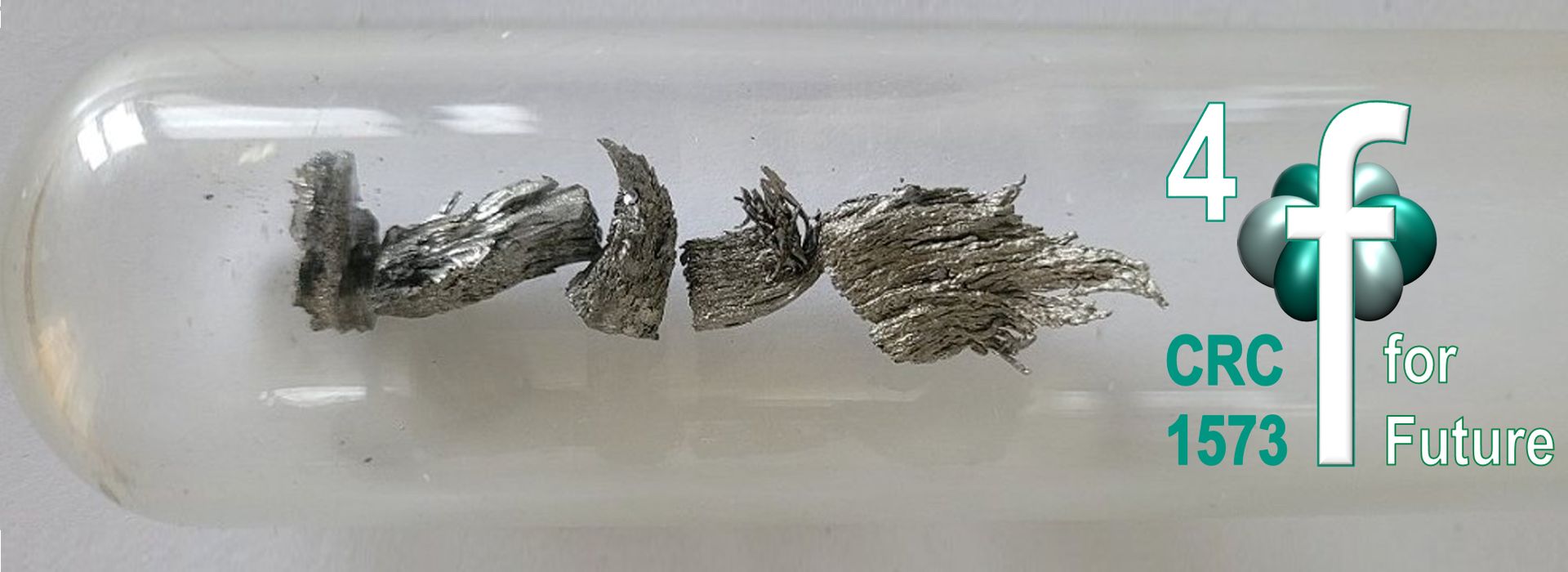
CRC/SFB 1573 "4f for Future"
Welcome to the website of the Collaborative Research Centre (CRC) 1573 "4f for Future". CRC 1573 is funded by the German Research Foundation (DFG) and has officially been launched on January 1st, 2023, cf. press releases from DFG and KIT. It is coordinated by Karlsruhe Institute of Technology (KIT), its current partners are Heinrich Heine University Düsseldorf (HHU, since 10/2023), the University of Tübingen (UTÜ) and Johannes Gutenberg University Mainz (JGU, since 08/2024).
Materials based on rare-earth metals and their compounds are of crucial importance to our modern high-tech society. Surprisingly, the molecular chemistry of these elements is poorly developed. However, recent progress in this area has shown that this is going to change: In the past years, dynamic developments in the chemistry and physics of molecular rare earth compounds have shifted borders and paradigms that existed for decades.
The chemistry of molecular and nanoscaled rare-earth compounds and their physical properties are in the focus of our CRC “4f for Future”. Its researchers study synthesis paths and physical properties of new molecular and nanoscaled rare-earth compounds in order to develop materials with unprecedented optical and magnetic properties.
Find out more about the individual research projects here.

Students from the "Technische Schule Aalen" visited our CRC at KIT, Campus South again on January 8, 2026.
Our PI Prof. Claus Feldmann and his co-workers led the interested young pupils around his labs and gave them some very comprehensive insights into studying chemistry in general (including a lecture on general chemistry) and a variety of scientific methods employed at KIT's Institute of Inorganic Chemistry (AOC), for lanthanide research.

Congratulations to "4f for Future" researcher Dr. Sophie Gutenthaler-Tietze from Prof. Lena Daumann's team at HHU Düsseldorf: she has been awarded the Römer Prize 2025 for her excellent doctoral thesis on "Lanmodulin-inspired Peptides and the Isolation and Investigation of a Metallophore from M. extorquens AM1" under Prof. Daumann's guidance at Ludwig-Maximilians-Universität (LMU) München.
The Römer Foundation has been supporting young researchers of chemistry and biochemistry at LMU for 20 years; this year, the foundation awarded a total of 19 prizes, eleven of which for doctoral theses. The photo shows Dr. Gutenthaler-Tietze (right) receiving congratulations from the chair of the advisory board, Prof. Ivanović-Burmazović (LMU).
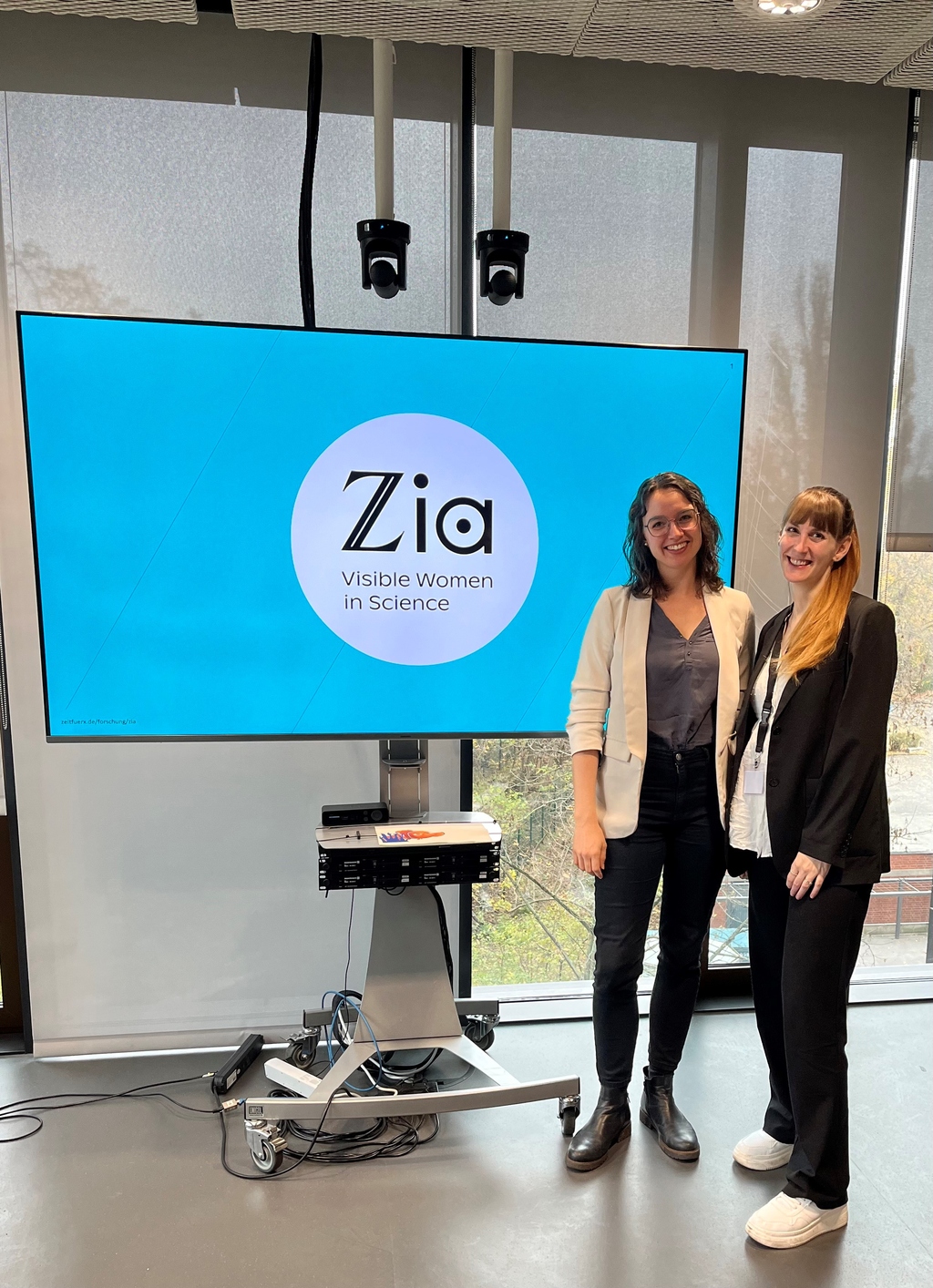
Congratulations to both Dr. Bianca Schacherl (KIT, on the left) and Dr. Sophie Gutenthaler-Tietze (HHU Düsseldorf) from our CRC who were selected for the ZEIT Zia Fellowship 2025/26. The competitive program “Zia – Visible Women in Science” offers young female scientists the opportunity to further their professional and personal development. Through targeted networking opportunities and exchanges with other talented early-career scientists and experienced role models, participants receive valuable input to help advance their careers in academia.
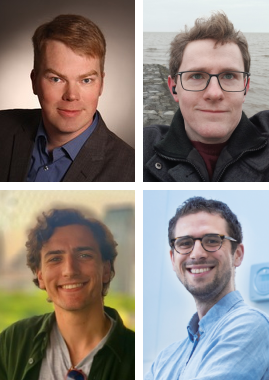
On the occasion of the CRC General Assembly in Oct. 2025, four KIT researchers newly joined our consortium: we warmly welcome PD Dr. Michael E. Harding (INT, top left), Dr. Christof Holzer (IQMT, top right), Dr. Oliver P. E. Townrow (INT, bottom left), and TT-Prof. Dr. Philip Willke (PHI) as new members of "4f for Future" and wish them a fruitful scientific collaboration within the framework of our CRC.
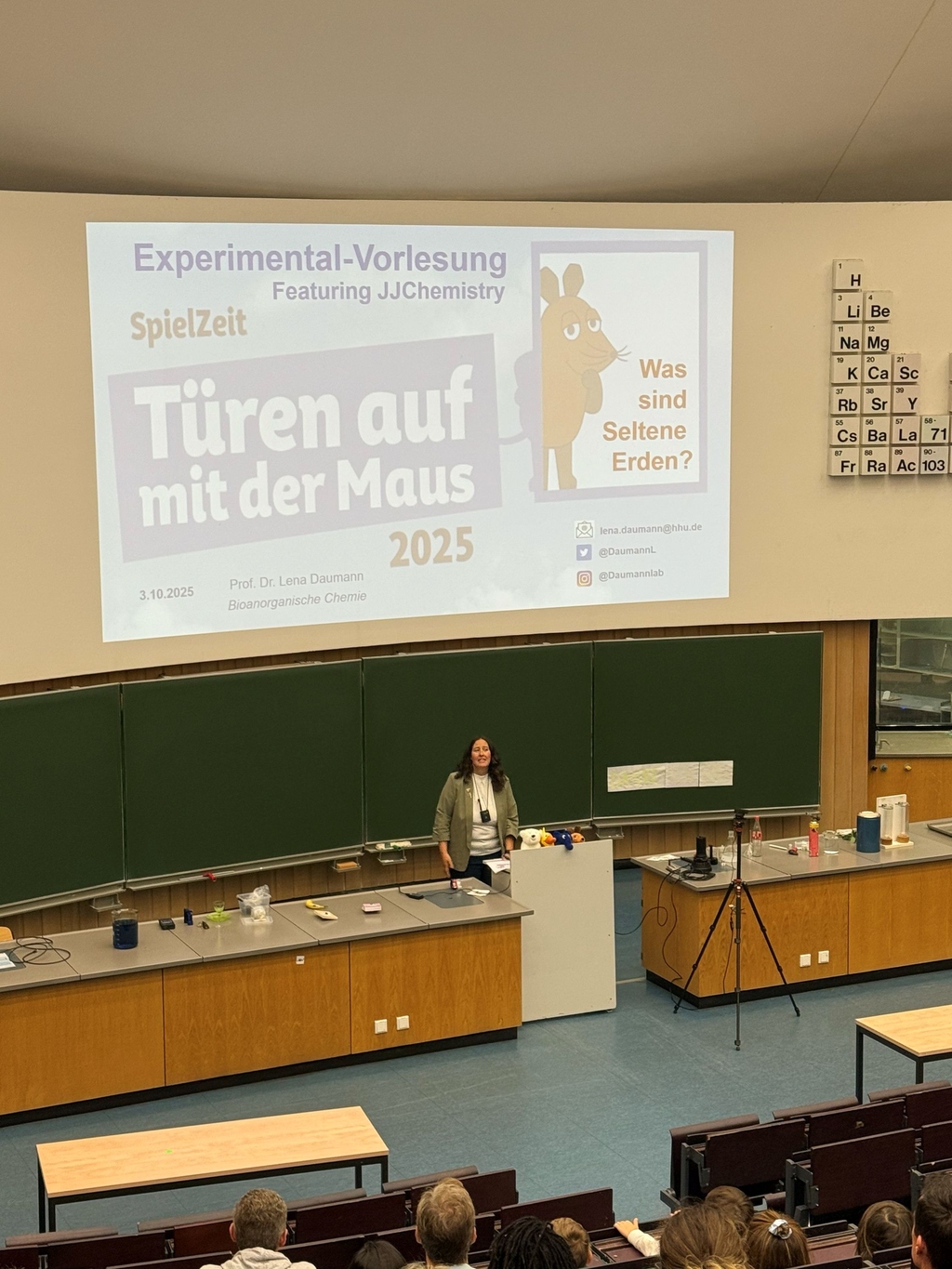
In October 2025 PI Prof. Lena Daumann and her eager "4f for Future" co-workers at HHU Düsseldorf, in particular Dr. Sophie and Jonathan Gutenthaler-Tietze, participated once again in the big German public outreach event "Türen auf mit der Maus"-Tag, organized by the renowned German broadcasting company WDR.
This time more than 150 interested young fans could follow an exciting experimental lecture on rare-earth elements with lots of cool experiments and accompanying lab tours. Of course, the Daumann group also provided little experiment kits to take home. The video link gives an impression of this event.
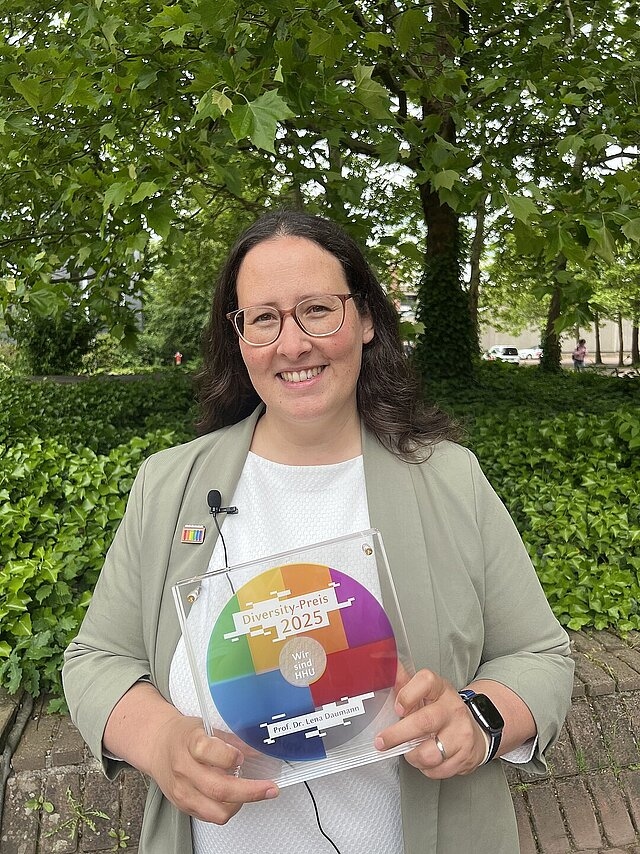
Heinrich Heine University Düsseldorf (HHU) has once again honoured particularly committed individuals who promote diversity and fair coexistence.
On Diversity Day, project leader Prof. Dr. Lena Daumann was awarded the Diversity Award 2025 in the "teaching staff status group" by Vice-Rector Prof. Dr. Heidrun Dorgeloh as her actions enrich the open culture that is lived and breathed in research, teaching, administration, technology and studies. Our congratulations go to the awardee who states that "a diverse and inclusive campus community, underpinned by empathy, is not only fairer, but also more innovative and ultimately more humane."
.
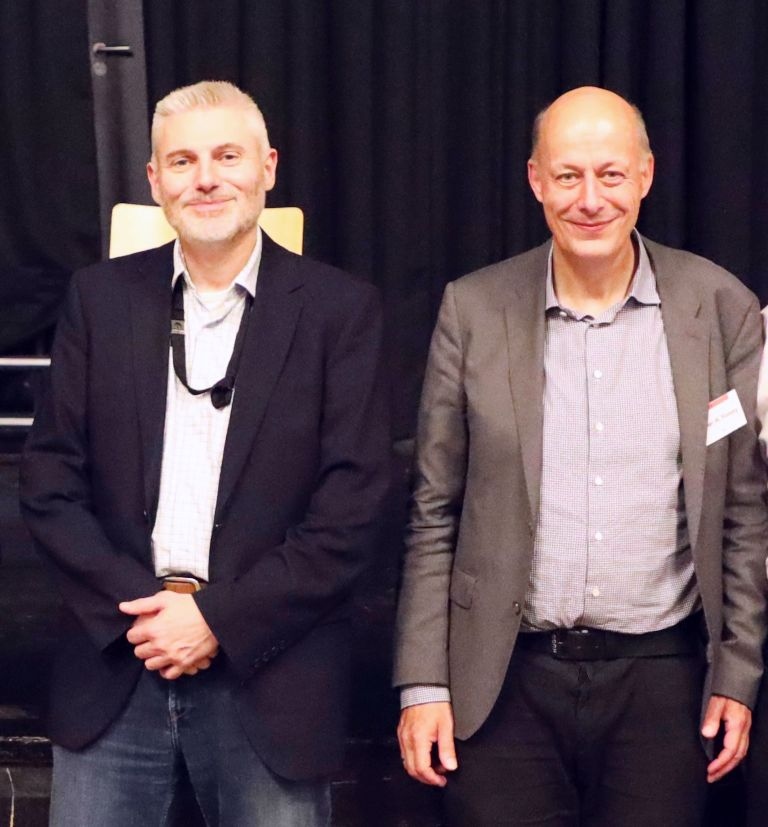
On the occasion of this year's Terrae Rarae conference held at KIT the Terrae Rarae Award 2025 was presented to Professor Stephen T. Liddle FRSE FRSC (The University of Manchester, UK) "in recognition of his outstanding contribution to the molecular chemistry of 4f- and 5f-elements".
In his laudatory speech, conference chair Prof. Peter W. Roesky (KIT) briefly outlined the career of Steve Liddle (left) and highlighted some key points of the latter's scientific research. Prof. Liddle, recipient of numerous awards, is Head of Inorganic Chemistry and Co-Director of the Centre for Radiochemistry Research at the University of Manchester since 2015.
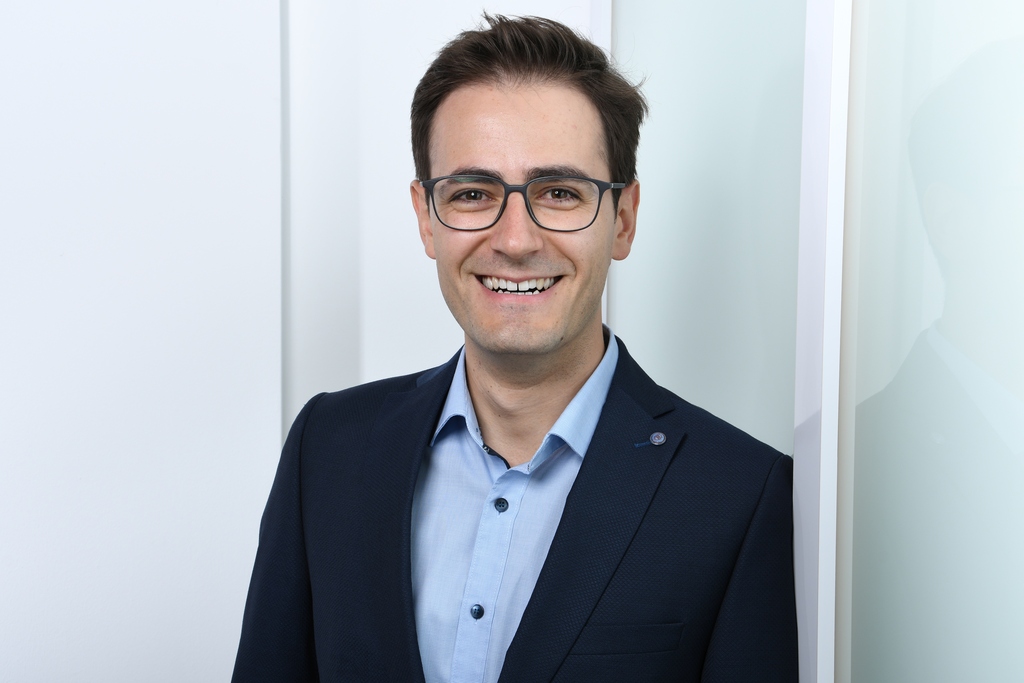
Congratulations to our IRTG manager Dr. Christian Ritschel, recipient of this year’s H.C. Starck PhD Award.
In his doctoral research at KIT he developed nanoparticles that combine different anti-cancer agents and deliver them in particularly high concentrations. This breakthrough could one day help target tumors more precisely while reducing the side effects of chemotherapy. The particles are already being tested at the TUM Klinikum Rechts der Isar (Munich).
The H.C. Starck PhD Prize, first established in 1995, is awarded every two years within the Division of Solid State Chemistry & Materials Research of the German Chemical Society (GDCh).
more info (in German)
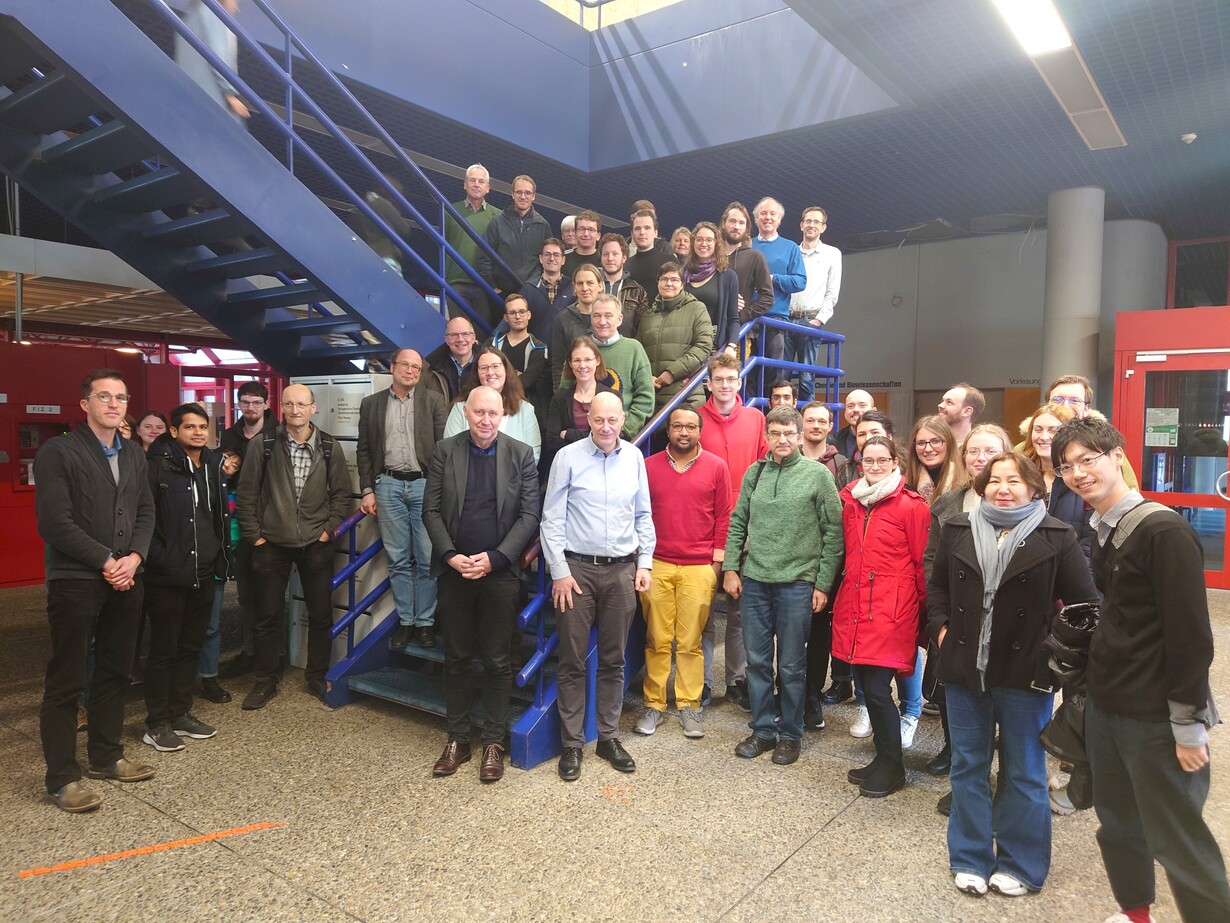
By clicking on the button below, data is loaded from the following external servers:
Personal data (e.g. your IP address) is transmitted to these external servers.
The web page would like to load the following external sources:
These are not loaded for data protection reasons! Activate JavaScript if you want to load this content. You only see the local content.
Der Sonderforschungsbereich SFB 1573 "4f for Future" befasst sich mit der Chemie molekularer und nanoskaliger Verbindungen der Seltenen Erden sowie ihren physikalischen Eigenschaften.
Diese Webseite ist nur in englischer Sprache verfügbar. Für deutschsprachige Informationen wenden Sie sich bitte an webmaster∂sfb1573.kit.edu.